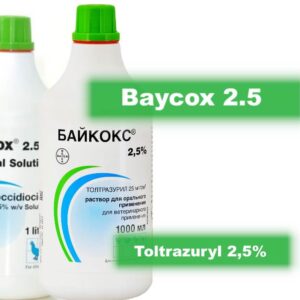Delivery service
Free Worldwide Shipping & Returns


The use of antibiotics in animal husbandry is the use of antibiotics for any purpose, in animal husbandry from livestock, which includes treatment in case of illness ( therapeutic ), treatment of a group of animals when at least one is diagnosed with a clinical infection (metaphylaxis), and preventive treatment ( prevention). Antibiotics are an important tool for treating animal and human diseases, protecting animal health and welfare, and ensuring food safety. However, if used irresponsibly, this can lead to antibiotic resistance, which can affect human, animal, and environmental health. Although levels of use vary greatly from country to country, for example, in some Northern European countries very low amounts are used to treat animals compared to humans, worldwide, it is estimated that 73% of antimicrobials (mainly antibiotics) are consumed by farm animals. In addition, a 2015 study also estimates that global use of agricultural antibiotics will increase by 67% from 2010 to 2030, mainly due to increased use in developing BRIC countries. This is a concern because antibiotic resistance is considered a serious threat to human and animal welfare in the future, and rising levels of antibiotics or antibiotic-resistant bacteria in the environment may lead to an increase in drug-resistant infections in both cases. Infectious diseases are the third leading cause of death in Europe, and a future without effective antibiotics will fundamentally change the methods of modern medicine and veterinary medicine. However, laws and other restrictions on the use of antibiotics in farm animals are currently being introduced around the world. In 2017, the world health organization strongly recommended reducing the use of antibiotics in animals used in the food industry. The use of antibiotics to promote growth has been banned in the European Union since 2006, and the use of sub-therapeutic doses of medically important antibiotics in animal feed and water to promote growth and improve feed efficiency has been illegal in the United States since January 1. In 2017, through a change in legislation passed by the food and drug administration (FDA), which sought voluntary consent from drug manufacturers to re-label their antibiotics.
No account yet?
Create an Account